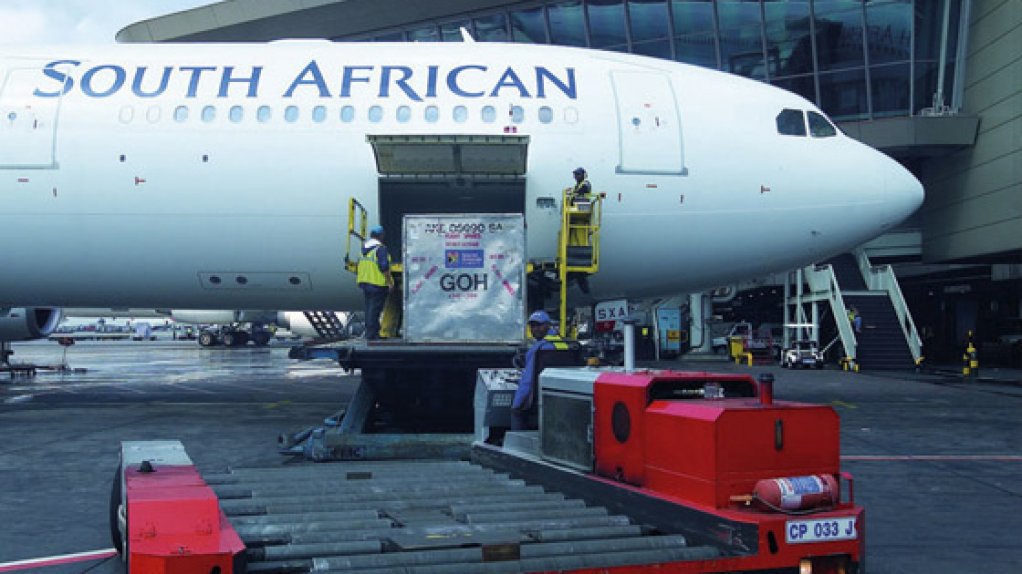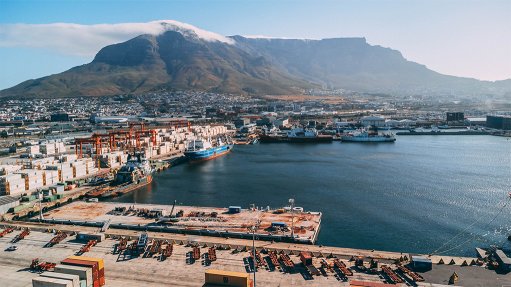Global air transport body expects continuing difficulties for air cargo
The global air cargo industry has experienced a difficult 2015, despite the drop in the fuel price. While the first quarter had seen growth, the rest of the year has not lived up to that promise. "Again, it goes without saying, it continues to be a challenging business environment," pointed out International Air Transport Association (Iata) Global Head of Cargo Glyn Hughes in Geneva on Wednesday.
This situation reinforces Iata's ambition to completely overhaul the international air freight sector. "Air cargo must transform itself into a lean, adaptive and innovative industry centred around increasingly sophisticated customer demands," he affirmed. "This industry is about going forward."
"We've seen substantially lower fuel costs over the year," noted Iata senior economist Julie Perovic. "So, we've had a massive decline in fuel prices over the past 18 months." A year ago, the oil futures markets expected the oil price to trend around $90/bl for the near future. Now, their expectation is around $60/bl.
Normally, she told the media briefing, a fall in oil prices stimulated economic growth, especially in oil-importing countries. But this growth can lag behind the drop in oil prices. This seems to be happening today. World economic growth this year is likely to be a little lower than in 2014.
While the indicators for world economic growth are still positive, they are less buoyant than a year ago. While developed economies have shown improved growth, the Asia-Pacific region has stagnated (neither growth nor decline) and sub-Saharan Africa is down a little. However, there has been a significant slowdown in Latin America. Most of this is due to the recession in Brazil, although Argentina has also contributed.
Interestingly, airline passenger growth has significantly outstripped air freight growth. Since 2008, passenger traffic, measured in Revenue Passenger Kilometres, has increased by 42%, whereas air cargo, measured in Freight (metric) Ton Kilometres (FTKs), has gone up by only 8%.
There are, Perovic reported, a number of explanations for this striking divergence. "We think there has been a structural change in world cargo in relation to domestic industrial production." For many years prior to 2008, world trade grew significantly faster than domestic industrial production. Since 2008, it has grown at basically the same rate.
While Middle Eastern carriers have seen a 5% increase in air cargo this year (indexed to December 2014), Asia-Pacific carriers have experienced a 3% decline. European carriers have seen a slight decline, with African, North American and Latin American carriers lying between their European and Asia-Pacific counterparts.
"Asia-Pacific carriers carry about 40% of industry FTKs," she highlighted. "There has been a gradual decline over the past six months. That's one of the main reasons we've seen a decline in the global trend."
Another major explanation is a cyclical one. "The recent decline in world trade is consistent with the fall in FTKs," pointed out Perovic. "World trade really has been weak." Trade volumes to and from the Euro area and the US have been static. "There is no support for air cargo in trade to and from these areas. But what stands out is trade to and from emerging Asia." This has fallen by 3% since the end of last year, despite a sharp rebound during the second half of the year.
Another source of pressure is the increase in air freight capacity. While dedicated freighter fleet capacity has declined, this has been more than countered by a great increase in passenger aircraft cargo capacity. "That hasn't benefitted [cargo] yields either. Those yields really have come off quite a lot over the past 12 months."
"These are some of the reasons for the [freight] slowdown in 2015," she summed up. "Freight load factors are now at six-year lows. Expectations for robust cargo growth in the next 12 months really have come off."
While IATA surveys of airline cargo heads and Chief Financial Officers have shown that they expect cargo volumes to increase, they also expect cargo yields to decline. However, the International Monetary Fund does expect improved global economic growth over the next couple of years. This will be underpinned by the developed economies, but emerging economies are expected to recover, as well.
Keith Campbell is attending the IATA Cargo Media Day 2015 in Geneva, Switzerland, as a guest of the organisation.
Comments
Press Office
Announcements
What's On
Subscribe to improve your user experience...
Option 1 (equivalent of R125 a month):
Receive a weekly copy of Creamer Media's Engineering News & Mining Weekly magazine
(print copy for those in South Africa and e-magazine for those outside of South Africa)
Receive daily email newsletters
Access to full search results
Access archive of magazine back copies
Access to Projects in Progress
Access to ONE Research Report of your choice in PDF format
Option 2 (equivalent of R375 a month):
All benefits from Option 1
PLUS
Access to Creamer Media's Research Channel Africa for ALL Research Reports, in PDF format, on various industrial and mining sectors
including Electricity; Water; Energy Transition; Hydrogen; Roads, Rail and Ports; Coal; Gold; Platinum; Battery Metals; etc.
Already a subscriber?
Forgotten your password?
Receive weekly copy of Creamer Media's Engineering News & Mining Weekly magazine (print copy for those in South Africa and e-magazine for those outside of South Africa)
➕
Recieve daily email newsletters
➕
Access to full search results
➕
Access archive of magazine back copies
➕
Access to Projects in Progress
➕
Access to ONE Research Report of your choice in PDF format
RESEARCH CHANNEL AFRICA
R4500 (equivalent of R375 a month)
SUBSCRIBEAll benefits from Option 1
➕
Access to Creamer Media's Research Channel Africa for ALL Research Reports on various industrial and mining sectors, in PDF format, including on:
Electricity
➕
Water
➕
Energy Transition
➕
Hydrogen
➕
Roads, Rail and Ports
➕
Coal
➕
Gold
➕
Platinum
➕
Battery Metals
➕
etc.
Receive all benefits from Option 1 or Option 2 delivered to numerous people at your company
➕
Multiple User names and Passwords for simultaneous log-ins
➕
Intranet integration access to all in your organisation





















